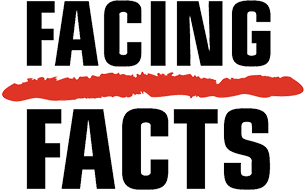Facing Facts DSA Webinar: Key insights from the European Commission and civil society organisations
23/09/2024
Brussels, 23 September 2024
On 3 September 2024, Melissa Sonnino, Facing Facts Network Director, opened the DSA Webinar, which featured representatives of the European Commission, civil society organisations and public authorities to reflect on the impact of the Digital Services Act (DSA) on hate speech responses. During the Webinar, the Facing Facts team presented the DSA Policy Brief, outlining the roles of key actors in the DSA ‘response system’ map.
The DSA – A Groundbreaking Legislative Framework
The Digital Services Act (DSA) is a unique legislative framework worldwide, requiring so-called ‘regulated entities’ to take much stricter action against illegal content to make the online sphere a safer space for its users. It marks a pivotal moment for EU leadership on online content regulation, giving the European Commission oversight over cooperation between social media platforms and other key actors alongside powers to fine platforms and scrutinise Social Media algorithms. Due to the fairly recent legislative nature of the DSA, questions remain(ed) open for actors working on hate speech. Representatives of DG Connect and DG Justice from the European Commission provided an overview of the DSA and answered questions from participants during this webinar.
Martina Maiello, Case Handler Officer Digital Services Act at the Directorate-General for Communications Networks, Content and Technology and Tommaso Chiamparino, Policy Officer, at the Directorate-General for Justice and Consumers shared an overview of the DSA and the new Code of Conduct +.
Maiello explained how the enforcement of the DSA involves multiple actors, including national Digital Services Coordinators (DSCs) and the European Commission, which oversee compliance, especially for Very Large Online Platforms and Search Engines. The transparency reports required from platforms under the DSA are seen as essential tools for tracking progress, offering data on how content is handled and enabling more consistent monitoring and research. Maiello highlighted the importance of civil society organisations and academia in supporting the enforcement of the DSA by providing their expertise:
“Not only do we rely on the expertise of our [European Commission, e.n.] staff, but also on the knowledge of experts working in this field, including researchers, professors, and civil society organisations, to effectively implement and enforce regulations.”
Martina Maiello, Case Handler Officer Digital Services Act at DG Connect
The importance of multi-stakeholder cooperation was also emphasised under the new Code of Conduct +, which is updated in line with Article 45 of the DSA, as highlighted by Chiamparino:
“The revised Code of Conduct + aims to set a new standard in combating hate speech online, with enhanced transparency, faster response times, and a robust framework for multi-stakeholder collaboration.”
Tommaso Chiamparino, Policy Officer at DG Justice
Impact of the DSA on Hate Speech Responses
The Facing Facts policy brief was developed after a request from Facing Facts Network members. During January – February 2024, the Facing Facts Network disseminated a survey to better understand the concerns of organisations working in this field. The DSA Policy Brief, which collates these experiences from civil society organisations and public authorities, particularly those working to monitor and respond to hate speech online, offers an overview of the DSA, along with key recommendations for each actor in the ‘DSA response system’ map.
During the webinar, Daniel Heller, Project officer and hate speech lead at Facing Facts, CEJI used the Facing Facts developed ‘system map’ graphic to visualise the roles and responsibilities of the various actors involved in ensuring compliance with the DSA.
Heller discussed the importance of “trusted flaggers,” “trusted monitors / monitoring reporters” and “trusted partners of social media platforms” in monitoring and reporting harmful content on regulated entities. Providing adequate funding for trusted flaggers and increasing linguistic expertise of content moderation teams are two important recommendations that the policy brief puts forward. The need for human moderation across the EU, particularly in reviewing flagged content in multiple languages is relevant, as automated systems, though useful, can miss context-specific hate speech:
“The importance of having content moderation teams that cover all EU languages cannot be underestimated. It ensures that content is accurately moderated across diverse linguistic communities, safeguarding against harmful biases and systemic risks on platforms.”
Daniel Heller, Project officer and hate speech lead at Facing Facts, CEJI
Q&A: Key Questions on the DSA enforcement
The DSA webinar served as a crucial platform for fostering collaboration and enhancing understanding of the Digital Services Act. The webinar’s Q&A discussion addressed questions directly submitted by webinar participants who were interested in learning more about legal measures for hate content in live-streams, funding for trusted flaggers, DSA standards across countries, criteria for selecting trusted flaggers. Questions also focused on the status of the update of the Code of Conduct on countering illegal hate speech online, the DSA’s definition of hate speech, the difference between trusted partners and monitors, and the European Commission’s awareness-raising efforts on the DSA. The answers to these questions can be found here.
The Facing Facts Network, which emerged from the Facing Facts initiative in 2021, is coordinated by CEJI – A Jewish Contribution to an inclusive Europe. The Facing Facts Network is an EU-funded network that encompasses a broad coalition of civil society organisations and public authorities working across communities and institutions to transform understandings of and responses to hate crime and hate speech in Europe.
For more details, the full policy brief and system map are available on the Facing Facts Network website.


 Facing Facts is co-funded by the Citizens, Equality, Rights and Values Programme
Facing Facts is co-funded by the Citizens, Equality, Rights and Values Programme